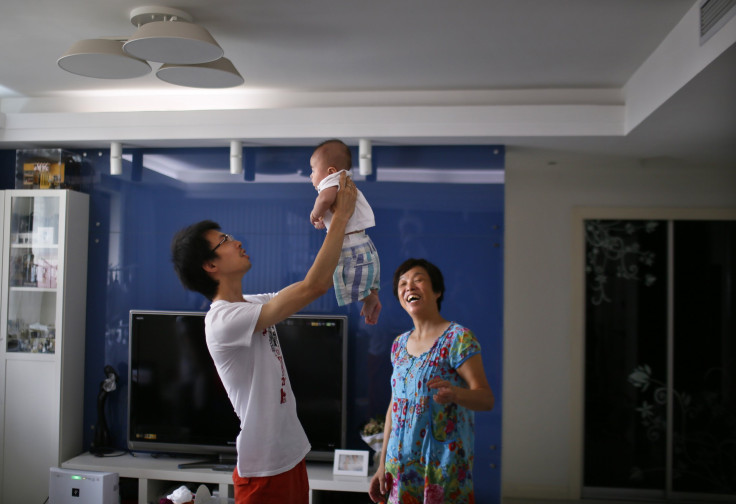China One-Child Policy Update: Birth Rate Soars To Highest In 17 Years

The change in what was formerly China’s strict one-child policy has resulted in an astronomical increase in the country's birth rates, according to the Chinese National Health and Family Planning Commission (NHFPC). Children in China were being born at the highest rate the country has seen in 17 years, the group announced Monday.
The one-child policy, introduced in 1979, slowly faded out early last year after four decades of being in place. With the updated policy, couples were allowed to request to have two children. The change came because of an aging population and large low birth rate in the country.
"While the total number of women of childbearing age fell by five million, the number of births increased significantly, showing that the family planning policy adjustments were extremely timely and extremely effective," said the NHFPC's Yang Wenzhuang.
There were 17.86 million births in 2016, a 7.9 percent increase in the previous year, statistics showed. More than 45 percent of the babies born in 2016 had one or more older siblings in their family, studies found.
The long-term effect of the universal second-child policy is very helpful to China's sustainable development," said Yuan Xin, a professor of population studies at Nankai University in Tianjin. Yang predicted there would be between 17 and 20 million births every year by 2020. By 2050, China may see an extra 30 million people of working age as well as a reduction in the nation's aging rate by 2 percent, officials have estimated.
The one-child policy was said to have reduced overpopulation, poverty and environmental degradation, according to Chinese officials.
However, a 2015 survey by the commission found nearly 75 percent of respondents were reluctant to have a second baby, mainly because of economic discomfort. Aside from financial concerns, families were hesitant because of their age, career development and a lack of caregivers, studies showed.
Yuan suggested the government “to consider incentives" such as implementing favorable tax policies, extended maternity leave and education for families with two children, which in the end will lessen the parents’ economic burdens.
Although the one-child policy has relaxed, regulations remained the same. Couples still must have a government-issued birth permit or face a forced abortion, according to BBC News.
© Copyright IBTimes 2025. All rights reserved.





















